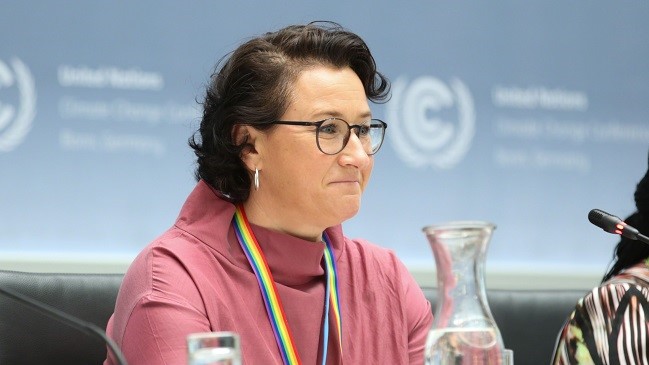The Climate Dialogues, a series of virtual events to help pave the way towards next year’s climate change conference (COP26) to be held in Glasgow, wrapped up on Friday, December 4, 2020.

More than 80 virtual events took place between November 23 and December 4, providing a platform for countries and other stakeholders to showcase progress made in 2020 and exchange views and ideas on mandated work for COP26.
The Climate Dialogues brought together some 8,000 attendees from around the world, including over 3,100 delegates. This, according to the organisers, indicates continued momentum on climate change action despite the postponement of COP26 from December this year to the end of 2021 owing to the COVID-19 pandemic.
“It is encouraging to see those impressive figures, which reflect the high interest of our partners to continue to engage in the climate change multilateral process, and of the wider public to stay informed and willing to participate in the fight against climate change,” said Marianne Karlsen, Chair of the body that provides advice on implementation to the COP.
The Climate Dialogue events covered a vast array of topics, including ambitious emission reductions, adapting to the effects of climate change, the provision of finance for climate action, technology cooperation, gender and capacity building.
Chair of the subsidiary body that provides technical and scientific advice to the COP, Mr. Tosi Mpanu Mpanu, underlined both the importance and the success of the dialogues: “Our main takeaway message is one on the catalysing effect of the events during the dialogues for the work of these bodies, in particular with regard to better organising and undertaking their work in the future. We are confident that the constituted bodies are now in a better position to advance the work in 2021 in accordance with their mandates in these action areas.”
The Climate Dialogues provided a platform for advancing the implementation of activities mandated for 2020 and advanced work under the subsidiary bodies and the COP in a virtual setting, thereby paving the way for a successful COP26.
The COP25 president, Minister Carolina Schmidt from Chile, said: “The Climate Dialogues have been a great opportunity to continue our discussions towards COP26, that must go ahead even in these difficult circumstances. Although negotiations will have to wait, these virtual talks are a substantive contribution to our common understanding in a wide range of crucial issues.
“As Presidency of COP25, we have organised, together with the United Kingdom, events on finance, adaptation, loss and damage, to contribute to this great effort led by the Chairs of the Subsidiary Bodies. Overall, this has been a hugely successful exercise, and gives us a clear indication that we are moving together in the right direction.”
“These Dialogues have demonstrated that even through virtual modalities, Parties are willing and able to deliver progress. I am impressed by the level of commitment and enthusiasm of all participants. I am confident that this spirit will drive the hard work that lies ahead to ensure a successful outcome at COP26,” said Patricia Espinosa, Executive Secretary of UN Climate Change.
At COP26, it will be vital that governments agree on the full set of rules to implement the Paris Agreement. This will not depend on one or two “big” decisions. Rather, nations must achieve something much more comprehensive and advance on the intergovernmental negotiations front.
“We need a balanced package of decisions and actions reflecting expectations, concerns and needs of all stakeholders in multiple areas — this time, set against a backdrop of ambition,” Ms. Espinosa emphasised.
COP26 provides an opportunity to reach a balanced agreement that can demonstrate to the world that countries are determined to achieve the goals of the Paris Agreement and to contribute to the intergovernmental process. This includes ambition on all fronts: emission reductions, adaptation and support for developing countries.
2020 marks the year in which countries submit more ambitious national climate action plans – or NDCs – as well as the long-term strategies (LTS). These plans and strategies, submitted once every five years, are tools for nations to specifically chart their path forward, both with respect to reducing emissions and adapting to climate change.
2020 also marks the year in which developed countries should have jointly mobilised $100 billion annually of public and private resources and through multilateral and bilateral channels as agreed to in Cancun in 2010. Five years later, in Paris, countries further decided that the current goal would extend through to 2025.
“That commitment has not yet been met. This has resulted in a significant lack of trust amongst Parties – specifically with respect to the scale of mobilisation and underlying reporting by developed countries,” Ms. Espinosa explained.
“Therefore, there is an urgent need to provide predictability and assurances on the $100 billion goal annually from 2020, including through political statements of intent by developed countries and actions by entrusted multilateral and bilateral institutions to intensify mobilisation and delivery of financial resources to developing countries,” she urged.
Following on from the Climate Dialogues, the next big milestone on the road to Glasgow is set to take place on December 12, 2020, when the Climate Ambition Summit will take place to celebrate the 5th anniversary of the Paris Agreement.
Co-hosted by the UK COP26 Presidency, the UN and France, in partnership with Chile and Italy, the Summit aims to rally momentum and call for much greater climate action and ambition.
